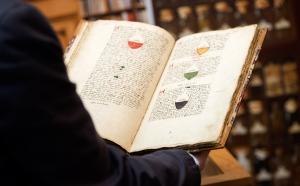
Serpents in Scotland: Edinburgh's Forgotten Contribution to Antivenoms in Australia
Speaker: Dr Peter Hobbins, Department of History, University of Sydney
The 1890s were a critical decade in the novel science of immunology. Emerging developments in bacteriology and tropical medicine revealed numerous microorganisms responsible for epidemic diseases. Putative vaccines and antitoxins emerged against typhoid fever, bubonic plague and diphtheria. Another strand of immunology from this period, however, has largely been overlooked. Collaborating with researchers around the globe, Professor Thomas Fraser at the University of Edinburgh generated numerous antivenenes, including several developed against Australian snake venoms. This presentation reveals how a President of the Royal College of Physicians of Edinburgh collaborated with a former student in the colony of Queensland to develop the theory and practice of applied immunology.
Dr Peter Hobbins is a professional historian with research interests in the history of science, technology and medicine. Initially trained as a pharmacologist, his historical publications have spanned snakebite, infectious diseases, quarantine, immunisation and aviation medicine. Peter is an honorary affiliate in the Department of History at the University of Sydney and a Visiting Scholar at the State Library of New South Wales. His 2017 book, Venomous Encounters: Snakes, Vivisection and Scientific Medicine in Colonial Australia, explored changing conceptions of snakes, venoms, antidotes and experimental practice over 1788–1914.



